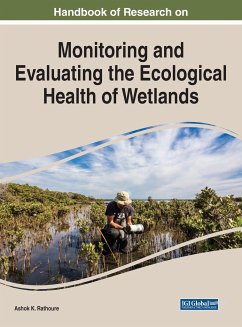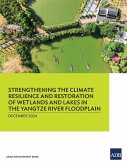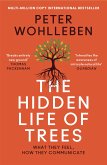Wetlands are among the world's most productive environments with countless species of plants and animals, as well as humans, dependent upon them for survival. Moreover, they provide many societal benefits including water quality improvement, flood storage, shoreline erosion control, and opportunities for recreation, education, and research. The conservation of inland wetlands is thus critical, and it is vital that they are protected in situ. The Handbook of Research on Monitoring and Evaluating the Ecological Health of Wetlands highlights the challenges of wetland conservation and current scenarios of existing wetlands and their effective management. The book also promotes the inventory, assessment, and monitoring of wetlands through a discussion of practical approaches, methodologies, and techniques. The strategies covered in this book can be applied in situ, depending on the wetland in which they will be applied. It covers the most cost-effective techniques in conservation of wetland technologies and the most cutting-edge research on monitoring of wetland health and its applications. Covering topics such as forest soil, greenhouse gasses, and ecological rejuvenation, it is an ideal resource for conservators, environmentalists, executives, policymakers, government officials, professionals, researchers, academicians, and students working in ecological management and wetland conservation fields.
Hinweis: Dieser Artikel kann nur an eine deutsche Lieferadresse ausgeliefert werden.
Hinweis: Dieser Artikel kann nur an eine deutsche Lieferadresse ausgeliefert werden.








